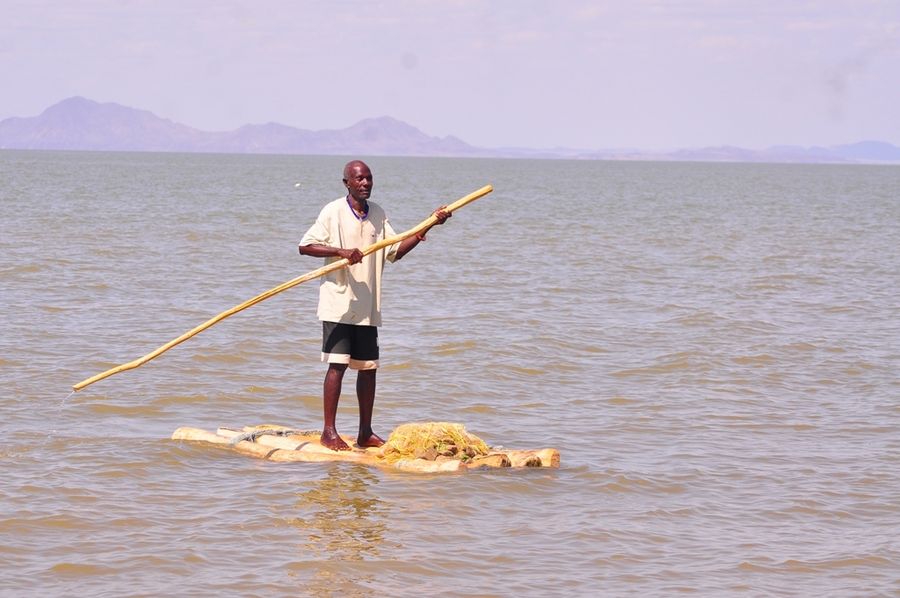
File photo shows a fisherman ferried at Lake Turkana, north Kenya, Aug. 27, 2014. Lake Turkana is known as the world's largest permanent desert lake and the world's largest alkaline lake. (Xinhua/Allan Muturi)
Kenya and Chinese scientists are to partner to conduct a biological study on the Lake Turkana Basin, which seeks to classify and document the natural heritage that is yet to be explored and collect specimens for the national repository.
NAIROBI, Jan. 14 (Xinhua) -- Kenya and Chinese scientists are set to partner to conduct a biological study on the Lake Turkana Basin in northeast Kenya later this year, a government official has said.
Esther Kioko, head of the zoology department of the National Museum of Kenya (NMK) told Xinhua Monday in Nairobi that the Lake Turkana Basin Biological survey project will be a collaborative effort between NMK, Sino-Africa Joint Research Centre (SAJOREC) and the Kenya Wildlife Service.
"It will be the first time that we are conducting a coordinated and comprehensive study on the plant and animal species in the Lake Turkana basin area," Kioko said.
She revealed that the overall output of the study is to classify and document the natural heritage that is yet to be explored as well as collect specimens for the national repository.
Kioko noted that the survey will look at the small mammals, birds, insects, amphibians and reptiles in the target area.
"The survey is important because Kenya cannot conserve what it does not know that it owns," she added.
According to the scientist, field analysis will be undertaken by taking samples of the flora and fauna in target areas due to the vast size of the area under research.
Kioko observed that the biological study will also offer a platform for capacity building for Kenyan researchers.
"By working side by side with Chinese scientists, Kenyan scientists will also benefit from knowledge transfer," she noted. ■



